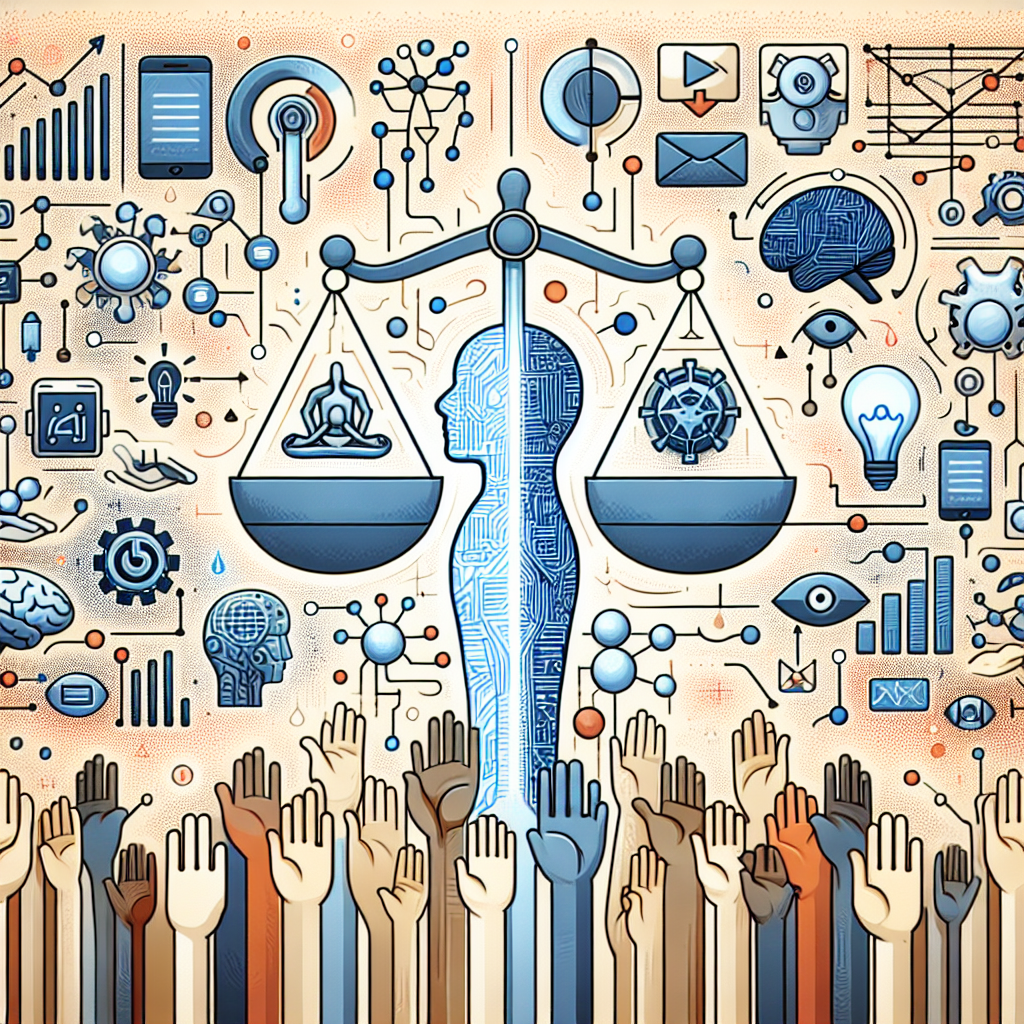The role of government in AI democratization
Artificial intelligence (AI) has the potential to revolutionize industries, improve efficiency, and enhance our daily lives. However, the benefits of AI are not equally distributed, with large tech companies and governments often leading the way in AI development. This has led to concerns about the democratization of AI and the potential for AI to exacerbate existing inequalities.
In order to ensure that the benefits of AI are accessible to all, governments have a crucial role to play in AI democratization. This article will explore the ways in which governments can promote the democratization of AI and address some frequently asked questions on the topic.
1. Promote AI education and skills development
One of the key ways in which governments can promote AI democratization is by investing in AI education and skills development. By ensuring that people have the necessary skills to work with AI technology, governments can help to level the playing field and ensure that the benefits of AI are accessible to all.
This can involve funding AI education programs in schools and universities, providing training opportunities for workers to upskill in AI, and supporting initiatives that aim to increase diversity in the AI workforce. By investing in AI education and skills development, governments can help to create a more inclusive AI ecosystem that benefits everyone.
2. Support AI research and development
Governments can also play a role in promoting AI democratization by supporting AI research and development. By funding research projects, providing grants to AI startups, and creating incentives for companies to develop AI solutions that benefit society, governments can help to ensure that AI technology is developed in a way that benefits everyone.
This can involve creating AI research centers, supporting open-source AI projects, and providing funding for AI initiatives that address pressing social issues. By supporting AI research and development, governments can help to ensure that AI technology is used for the greater good and not just for the benefit of a few.
3. Regulate AI technology
In order to promote AI democratization, governments also need to regulate AI technology in a way that ensures fairness, transparency, and accountability. This can involve creating guidelines for the ethical use of AI, establishing standards for AI algorithms, and implementing mechanisms for auditing and monitoring AI systems.
Regulation can help to prevent the misuse of AI technology, protect individuals’ rights and privacy, and ensure that AI systems are developed in a way that is inclusive and transparent. By regulating AI technology, governments can help to build trust in AI systems and ensure that they are used in a way that benefits society as a whole.
4. Promote collaboration and partnerships
Finally, governments can promote AI democratization by fostering collaboration and partnerships between different stakeholders in the AI ecosystem. This can involve working with industry, academia, and civil society to develop AI solutions that address social challenges, promote diversity in the AI workforce, and ensure that AI technology is used for the greater good.
By promoting collaboration and partnerships, governments can help to ensure that the benefits of AI are accessible to all and that AI technology is developed in a way that benefits society as a whole. This can involve creating AI task forces, hosting AI summits, and supporting initiatives that aim to bring together different stakeholders to discuss and address pressing issues in the AI ecosystem.
Frequently asked questions about the role of government in AI democratization
Q: What is AI democratization?
A: AI democratization refers to the process of making AI technology accessible to all, regardless of their background or resources. This involves ensuring that AI technology is developed in a way that benefits everyone and that the benefits of AI are shared equitably across society.
Q: Why is government involvement important in AI democratization?
A: Government involvement is important in AI democratization because governments have the resources, authority, and mandate to promote the public good and ensure that AI technology is developed and used in a way that benefits society as a whole. Governments can help to level the playing field, address inequalities, and ensure that the benefits of AI are accessible to all.
Q: How can governments promote AI democratization?
A: Governments can promote AI democratization by investing in AI education and skills development, supporting AI research and development, regulating AI technology, and promoting collaboration and partnerships in the AI ecosystem. By taking these actions, governments can help to ensure that AI technology is developed in a way that benefits everyone and that the benefits of AI are shared equitably across society.
Q: What are some examples of government initiatives that promote AI democratization?
A: Some examples of government initiatives that promote AI democratization include funding AI education programs, supporting AI research projects, regulating AI technology to ensure fairness and transparency, and fostering collaboration and partnerships in the AI ecosystem. These initiatives can help to ensure that the benefits of AI are accessible to all and that AI technology is developed in a way that benefits society as a whole.
In conclusion, the democratization of AI is a crucial issue that requires the involvement of governments, industry, academia, and civil society. By promoting AI education and skills development, supporting AI research and development, regulating AI technology, and promoting collaboration and partnerships, governments can help to ensure that the benefits of AI are accessible to all and that AI technology is used in a way that benefits society as a whole. By working together, we can create a more inclusive and equitable AI ecosystem that benefits everyone.

